Text
Sometimes I like to go and read bad reviews for books I really liked (or bad reviews for books I didn’t like so I feel validated in my hate lol) and pick apart the criticisms. A lot of the 2-star reviews for The Obelisk Gate, which of course wasn’t as good as The Fifth Season, complained about nothing happening and Essun not growing at all. But like...the whole thing was her learning and growing as a person, even if it wasn’t all action and activity. I personally enjoyed all her interactions with the other Castrimans, and her growth in accepting herself and understanding her potential. And sometimes, like, you just gotta sit still for a moment. You gotta put off doing the thinf you really want to do because, sometimes...you realize that it’s really just what you think you want. Having a character barrel past other things to single-mindedly strive for their goal is unrealistic, though that might just be my ADHD brain talking.
Anyway, the only thing I didn’t like about this book was how we were introduced to Shaffa’s POV, got it, like, three times? Four? And then never again. I wanted more of that.
#the broken earth#the broken earth trilogy#the obelisk gate#nk jemisin#it had been a while since id flown through books the way i flew through these
0 notes
Text
Writing Tips from an Editor (Who Also Writes)
People throw around the phrase “Show, don’t tell” all the time. But what does it mean? Really?
When I’m editing a client’s work, I always explain what I mean when I say “Show, don’t tell,” so I know we’re on the same page (pun intended).
FYI: This advice is really 2nd or 3rd draft advice. Don’t tie yourself in knots trying to get this perfect on the first go. First drafts are for telling yourself the story. Revisions are for craft.
Ruthlessly hunt down filter words (saw, heard, wondered, felt, seemed, etc.). Most filter words push the reader out of narrative immersion, especially if you’re writing in 1st person or a close 3rd person. “She [or I] heard the wind in the trees” is less compelling than “The wind rustled through the trees” or “The wind set the bare branches to clacking.” Obviously, the point of view character is the one doing the hearing; telling the reader who’s doing the hearing is redundant and creates an unnecessary distance between the character’s experience and the reader’s experience of that experience. Was/were is another thing to watch out for; sometimes, nothing but was will do, but in many instances—“There was a wind in the trees” “There were dogs barking”—“was” tells, whereas other phrasing might evoke—“The wind whispered/howled/screamed through the trees” “Dogs snarled/yipped/barked in the courtyard/outside my door/at my heels.”
Assume your readers are smart. What does this mean? Don’t tell the reader what your characters are thinking or feeling: “Bob was sad.” How do we know? What does Bob’s sadness look like, sound like? What actions, expressions, words indicate Bob’s sadness? Does Bob’s sadness look different than Jane’s would?
It also means that you need not repeat information unless you have something new to add to it—even if it’s been several chapters since you first mentioned it. I think a lot of readers fall into this trap because writing often takes a long time. But what takes a writer days or weeks or months to write might take a reader fifteen minutes to read. So, if the writer keeps telling the reader about so-and-so’s flaming red hair or such-and-such’s distrust or Bob’s blue eyes or Jane’s job as a neurosurgeon, the reader gets annoyed.
The last thing you want is your reader rolling their eyes and muttering, “OMG, I KNOW” at the story you’ve worked so hard to write. It certainly means you don’t need to have characters tell each other (and through them, the reader) what the story is about or what a plot point means.
Along these same lines, let the reader use their imagination. “Bob stood, turned around, walked across the room, reached up, and took the book from the shelf.” Holy stage directions, Batman! A far less wordy “Bob fetched the book from the shelf” implies all those irrelevant other details. However, if Bob has, say, been bedbound for ten years but stands up, turns around, and walks across the room to fetch the book, that’s a big deal. Those details are suddenly really important.
Write the action. Write the scene with the important information in it. Let the reader be present for the excitement, the drama, the passion, the grief. If you’re finding yourself writing a lot of after-the-fact recap or “he thought about the time he had seen Z” or “and then they had done X and so-and-so had said Y,” you’re not in the action. You’re not in the importance. Exceptions abound, of course; that’s true of all writing advice. But overuse of recapping is dull. Instead of the reader being present and experiencing the story, it’s like they’re stuck listening to someone’s imperfect retelling. Imagine getting only “Last week on…” and “Next week on…” but never getting to watch an episode. I’m editing a book right now with some egregious use of this. The author has a bad habit of setting up a scene in the narrative present—“The queen met the warrior in the garden.”—but then backtracking into a kind of flashback almost immediately. “Last night, when her lady-in-waiting had first suggested meeting the warrior, she had said, ‘Blah blah blah.’ The queen hadn’t considered meeting the warrior before, but as she dressed for bed, she decided they would meet in the garden the next day. Now, standing in the garden, she couldn’t remember why it had seemed like a good idea.”
That’s a really simplified and exaggerated example, but do you see what I’m getting at? If the queen’s conversation with the lady-in-waiting and the resulting indecision are important enough to be in the narrative, if they influence the narrative, let the reader be present for them instead of breaking the forward momentum of the story to “tell” what happened when the reader wasn’t there. Unless it’s narratively important for something to happen off-page (usually because of an unreliable narrator or to build suspense or to avoid giving away a mystery), show your readers the action. Let them experience it along with the characters. Invite them into the story instead of keeping them at a distance.
Finally, please, please don’t rely on suddenly or and then to do the heavy lifting of surprise or moving the story forward; English has so many excellent verbs. Generally speaking, writers could stand to use a larger variety of them.
(But said is not dead, okay? SAID IS VERY, VERY ALIVE.)
12K notes
·
View notes
Text
all the tips I found for drawing a fantasy map are like :) “here’s a strategy to draw the land masses! here’s how to plot islands!” :) and that’s wonderful and I love them all but ??? how? do y'all decide where to put cities/mountains/forests/towns I have my map and my land but I’m throwing darts to decide where the Main Citadel where the Action Takes Place is
#i love this so much#i took a geology of us national parks class in college#and that genuinely helped shape a lot of how i think about world building#and this post explains it so well and simply#i love geology man#plate tectonics and whatnot#neat stuff#and it just makes the world youre building so much more real
96K notes
·
View notes
Text
Exclusive Cover Reveal: Glitter + Ashes: Queer Tales of a World That Wouldn't Die
Exclusive Cover Reveal: Glitter + Ashes: Queer Tales of a World That Wouldn’t Die
It’s always a good day when it’s a Neon Hemlock cover reveal day! Today’s is for Glitter + Ashes: Queer Tales of a World That Wouldn’t Die, an anthology of post-apocalyptic fiction featuring some major faves from the world of SFF and releasing in September! Here are the details:
Glitter + Ashes: Queer Tales of a World That Wouldn’t Dieis an anthology of post-apocalyptic fiction centering queer…
View On WordPress
10 notes
·
View notes
Text
You’re writing PTSD dreams wrong
But don’t worry, most writers are and I’m here to help because reading them is making me cRAzY.
I’m writing this because I’ve read three otherwise great romance novels back to back featuring characters dealing with PTSD (or PTSD symptoms) and each one of them made the same dream mistakes. I honestly can’t think of a fiction book I’ve read that didn’t make these mistakes, so I thought I’d compile a handy dandy list of mistakes and how to fix them.
Lucky for you, I have PTSD and a ton of fellow veteran friends who deal with these symptoms.
*This is based on my experience and things told to me by friends. This is not to say that the below doesn’t happen in real life, only that it’s not as common as you might think.
The issue with these dreams is twofold: on one side is the psychological accuracy of the dream and on the other side is how you’re using the dream within the narrative.
Oh an Black Sails spoilers-ish ahead.
1) Stop writing the dream as a shot-by-shot accurate retelling of Traumatic Event.
Listen, not only do dreams seldom follow reality, but our own memories are tricky at best. I don’t remember getting beaten up because a) it was horrifying and we block stuff like that out and b) I was going in and out of consciousness. It would be pretty strange for me to dream something I don’t even fully remember. Our brains are simply not wired to do these vivid factually-accurate cinematic retellings.
My friend dreams things that did happen, but in his own words those dreams are always wrong in some noticeable or bizarre way. For instance, he’s getting chased through the streets of Iraq by a werewolf.
2) Dreams are informed by reality, not direct reflections of it.
It’s entirely likely my friend dreamt of a werewolf in Iraq because I got him binge watching Supernatural and the two ideas merged in his dreamstate. But see, that’s how dreams work.
The trauma event exists as a constant in his subconscious, but he has all this other information right there in his conscious mind all day, every day. In dreams, there isn’t a clear delineation between that information.
My dreams are often dependent on whatever I’ve fallen asleep watching on television. The themes are consistent, but not the content.
In Black Sails, Captain Flint’s trauma dreams feature his dead partner and friend following him around his empty ship. You have an element of the trauma (the animated corpse of his friend) + his daily existence (his ship). The two things intersect to form these unsettling nightmares as expressions of his fears and grief. He never once relives the event itself in his dreams as shown on screen.

Speaking of…
3) Trauma dreams often revolve around feelings, not necessarily the events themselves.
The PTSD package generally includes heaps of shame, guilt, anger and fear. As someone who survived a beating when I should have had control of the situation, my dreams tend to revolve around fear that people will know I’m a fraud or being unable to act in a dangerous situation.
Again, it’s entirely common for trauma victims to not remember large chunks (or the whole thing) of the trauma event. So why should their dreams be stunningly accurate? What we remember are feelings. Real strong feelings.

You cannot go wrong if you write your trauma dream around feelings, not a specific event.
4) If you present trauma dreams as expressions of themes, you can let go of the trauma dream as an exposition dump/way overused suspense trope.
You know you’ve read this: MC has dreams that are a shot-by-shot retelling of Traumatic Event that always cut off right before Traumatic Event, so that the Big Reveal must happen by a discovery later in the novel.
If I were the MC in a book, the easy and common thing would be to use the “dream sequence” as an expository retelling of Traumatic Event as a way to give some backstory to why I might be surly, mistrustful, afraid to try something new, whatever, and to clumsily shoehorn in suspense where there doesn’t need to be.
The much more interesting thing might be if my dreams were inconsistent in content but consistent in theme. In one I’m on an alien planet (because I fell asleep watching the Science Channel again) and the ground opens up and I fall into a pit from which I can’t escape because I am helpless. In another a man is watching me while I sleep where I am again frozen and helpless. This would force the reader to think: what is the recurring issue in these dreams? Why is it important? What is this telling me about this character and what happened to her?
It could be a personal preference, but I’d rather see the Traumatic Event either told in narrative flashbacks (not dreams) or verbally retold by the character in question. Let the dreams tell me something deeper about the character. It’s not that I was beat up, it’s that I feel like a failure because of it. One of these things is a shallow factual detail, the other tells you something about me as a person that I’m sharing with you, gentle reader, because talking about this stuff is healthy.
5) The Traumatic Event doesn’t have to be a big secret.
In Black Sails, we know what happened to Captain Flint’s partner. It happened in real time in the show. That didn’t make his uber disturbing dreams less disturbing or mysterious. Fans still debate exactly what the symbolism was and what they were telling us about James Flint in those moments. We do know from the dreams that he was disturbed, obsessed, and also monumentally guilty and blaming himself for what happened.
The mystery was perhaps more heightened by the fact that the dreams weren’t direct reflections of reality. We know who this person was, what she believed, and why she died. That Flint is imagining her screaming silently in his ear is horrifying and discordant with what we know to be factual. This adds emotional complexity to his character and the decisions he’s making while suffering these dreams.

^^^this didn’t happen. It was a dream. A real unsettling dream.
Once you let go of the concept of the trauma dream as a literal retelling and exposition dump, you have the entire dreamscape to work in other narrative elements, like symbolism, metaphor, foreshadowing, etc.
*1st gif source: @idontwikeit
35K notes
·
View notes
Text
here have 10 pieces of writing advice that have stuck with me over the years
every character’s first line should be an introduction to who they are as a person
even if you only wrote one sentence on a really bad day, that’s still one sentence more than you had yesterday
exercise restraint when using swear words and extra punctuation in order for them to pack a punch when you do use them
if your characters have to kiss to show they’re in love, then they’re not in love
make every scene interesting (or make every scene your favorite scene), otherwise your readers will be just as bored as you
if you’re stuck on a scene, delete the last line you wrote and go in a different direction, or leave in brackets as placeholders
don’t compare your first draft to published books that could be anywhere from 3rd to 103rd drafts
i promise you the story you want to tell can fit into 100k words or less
sometimes the book isn’t working because it’s not ready to be written or you’re not ready to write it yet; let it marinate for a bit so the idea can develop as you become a better writer
a story written in chronological order takes a lot more discipline and is usually easier to understand than a story written with flashbacks
75K notes
·
View notes
Text
Is it rude to leave a review alongside two stars on a book and then immediately follow the author on Twitter?
0 notes
Text
Do you ever read a book that is kinda a chore but not bad enough to DNF it? Idk what it is about this book but something in it has me hooked even though I’m not really enjoying it...
#the characters are just terrible#i do have to give it props for killing a child tho#like that was so surprising and i was not expecting it and idk#i respect when things dont pull punches i guess#but yeah the character writing is just overly contrived
0 notes
Text
I would love to see the motion capture tech and visual effects from JC’s Avatar used for a TV adaptation of the Books of the Raksura. It’s all I’ve been able to think about for weeks
6 notes
·
View notes
Text
If I were author of a popular book with a huge fandom, I’d make a secret AO3 account and write fanfiction for my own story. Idk why but in my opinion that’s the funniest fucking thing you can do as a well-known author.
Imagine telling your fans you have a fanfiction account but not telling them how it’s named so they start making theories. Imagine not telling anyone and people in reviews will tell you your writing style reminds them of the original author. Or imagine being told that you write your own OCs out of character. That concept is so funny to me, I’m-
#i think about this a lot#especially considering that ive definitely shipped my own characters with no intention of making them canon
53K notes
·
View notes
Photo
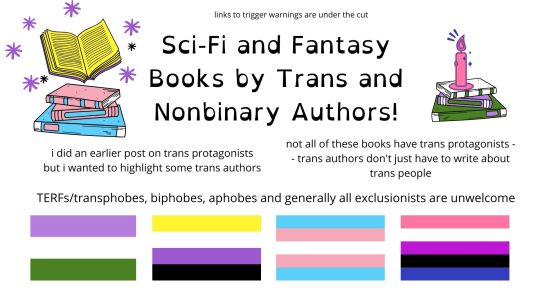


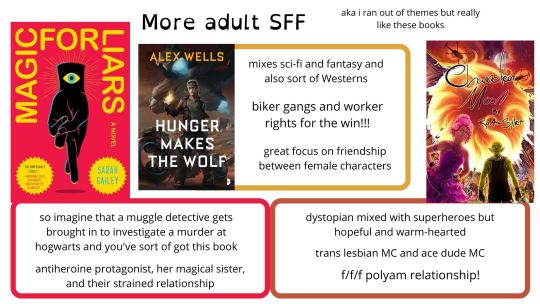
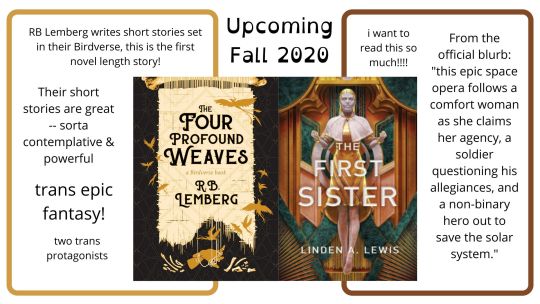


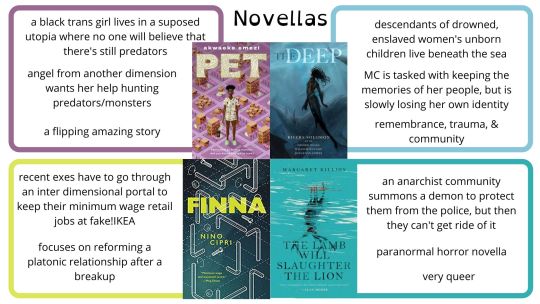
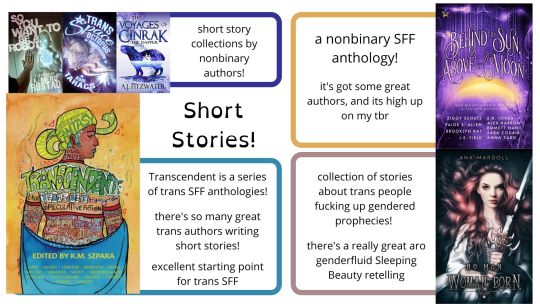

I’ve been working on this post on and off for the last few months. I always intended to post it during Pride Month, and hey, here we are. I’ve got a lot going on in my life right now, so this might be the last book rec post for quite a while.
When possible, I’m linking to the Queer SFF Book Database since it has information on trigger warnings and links to reviews by queer readers. When not in the database of 6/15/20, I’ll be linking to Goodreads. Links are all below the cut.
Do not recommend cis authors on this post. This post is for centering trans and nonbinary authors. Please note that trans people write all sorts of stories and protagonists, and these books don’t automatically have trans or queer protagonists.
My master list of book rec posts is here, if you want to find more.
If you’re looking for a starting place on trans SFF, I strongly suggest the Transcendent anthology series as an overview. It’ll introduce you to a wide array of incredible stories from trans and nonbinary authors.
This list does not cover all of the amazing trans and nonbinary authors writing science fiction and fantasy! There are many more, and please feel free to suggest them here.
If you see any exclusionists or TERFs on this post, let me know without engaging and I will block them ASAP. I would prefer to keep this post a safe, positive place for trans readers.
Keep reading
18K notes
·
View notes
Text
I am a(n):
⚪ Male
⚪ Female
🔘 Writer
Looking for
⚪ Boyfriend
⚪ Girlfriend
🔘 An incredibly specific word that I can't remember
411K notes
·
View notes
Photo

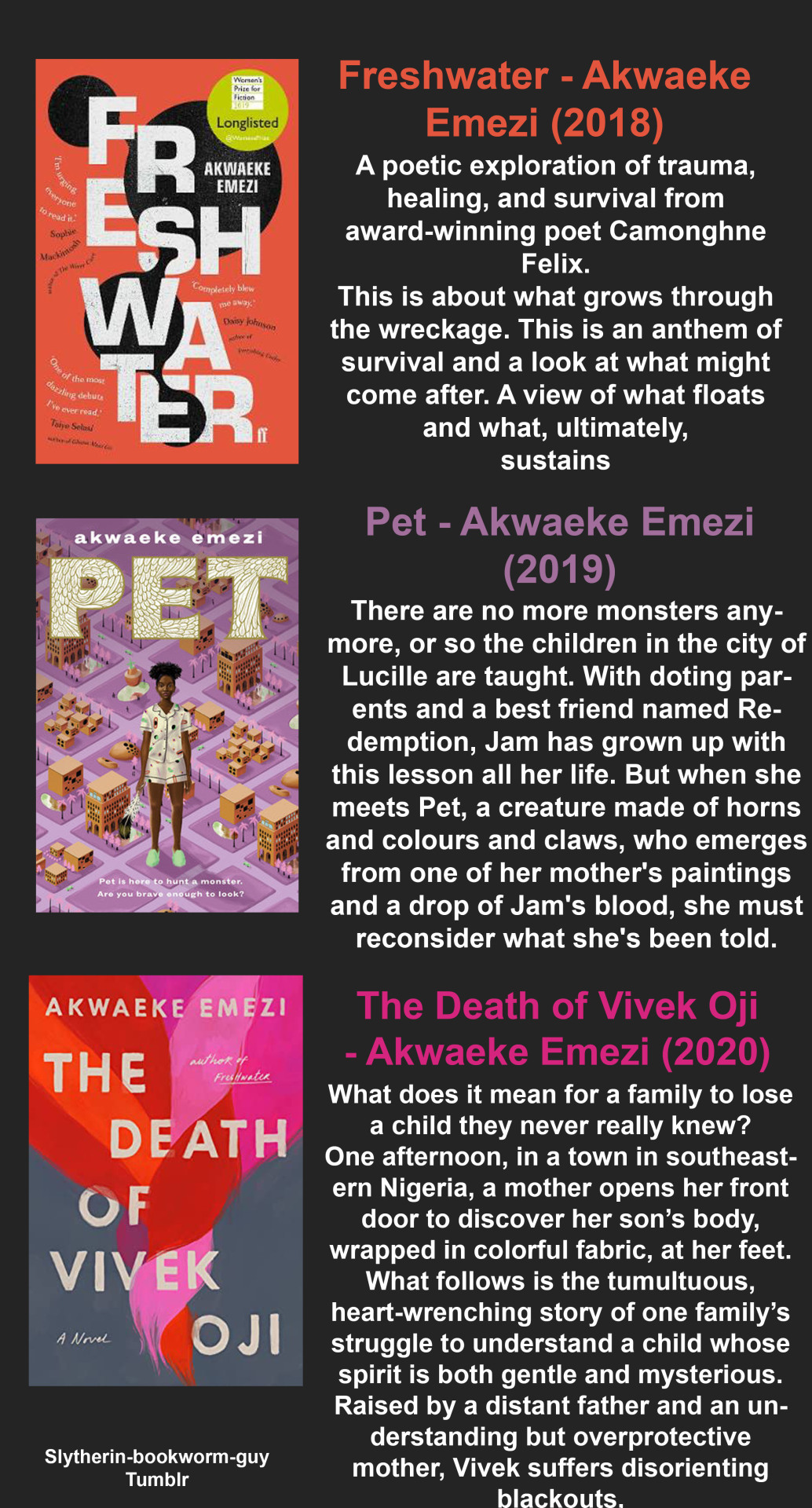
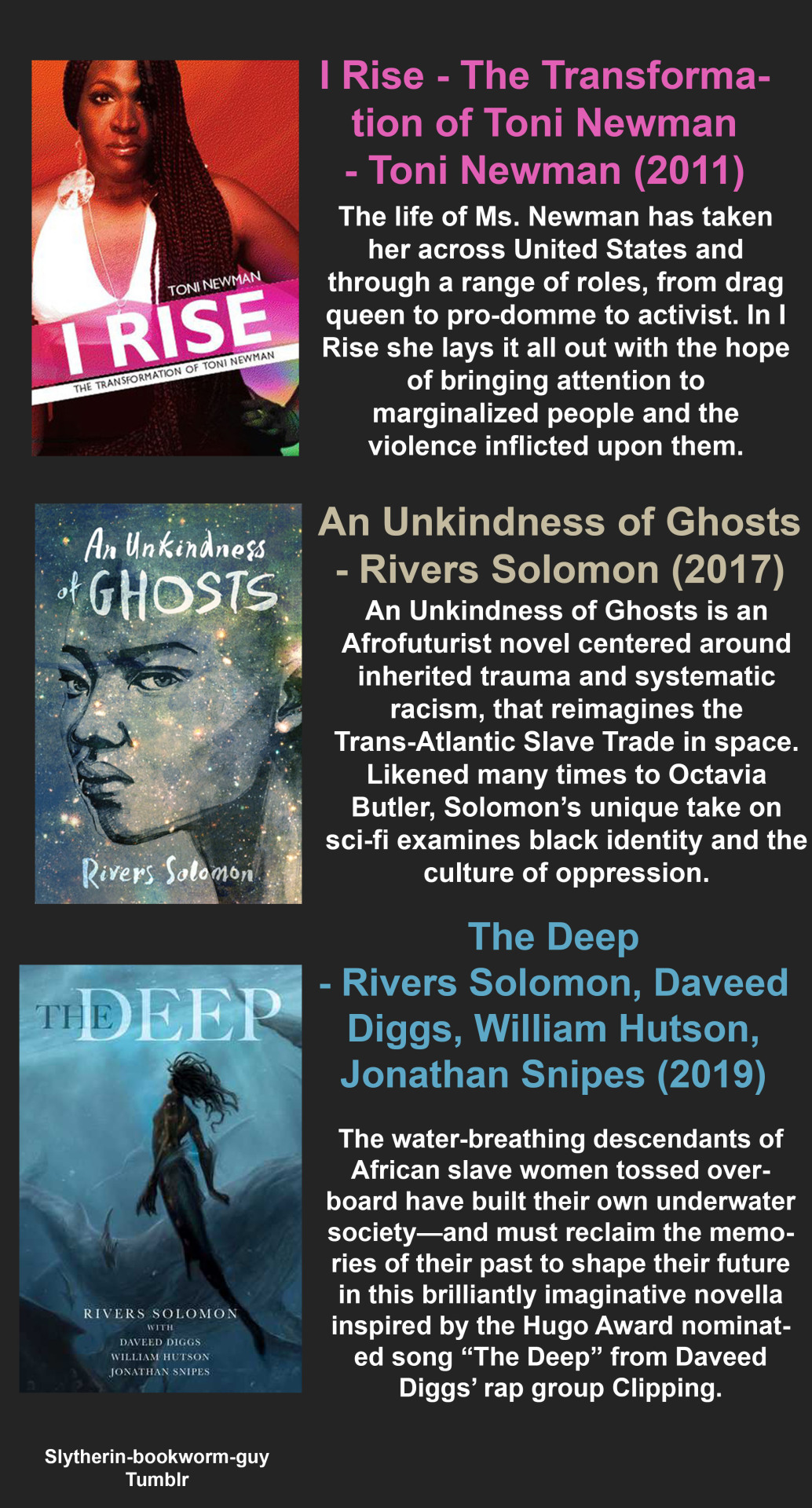
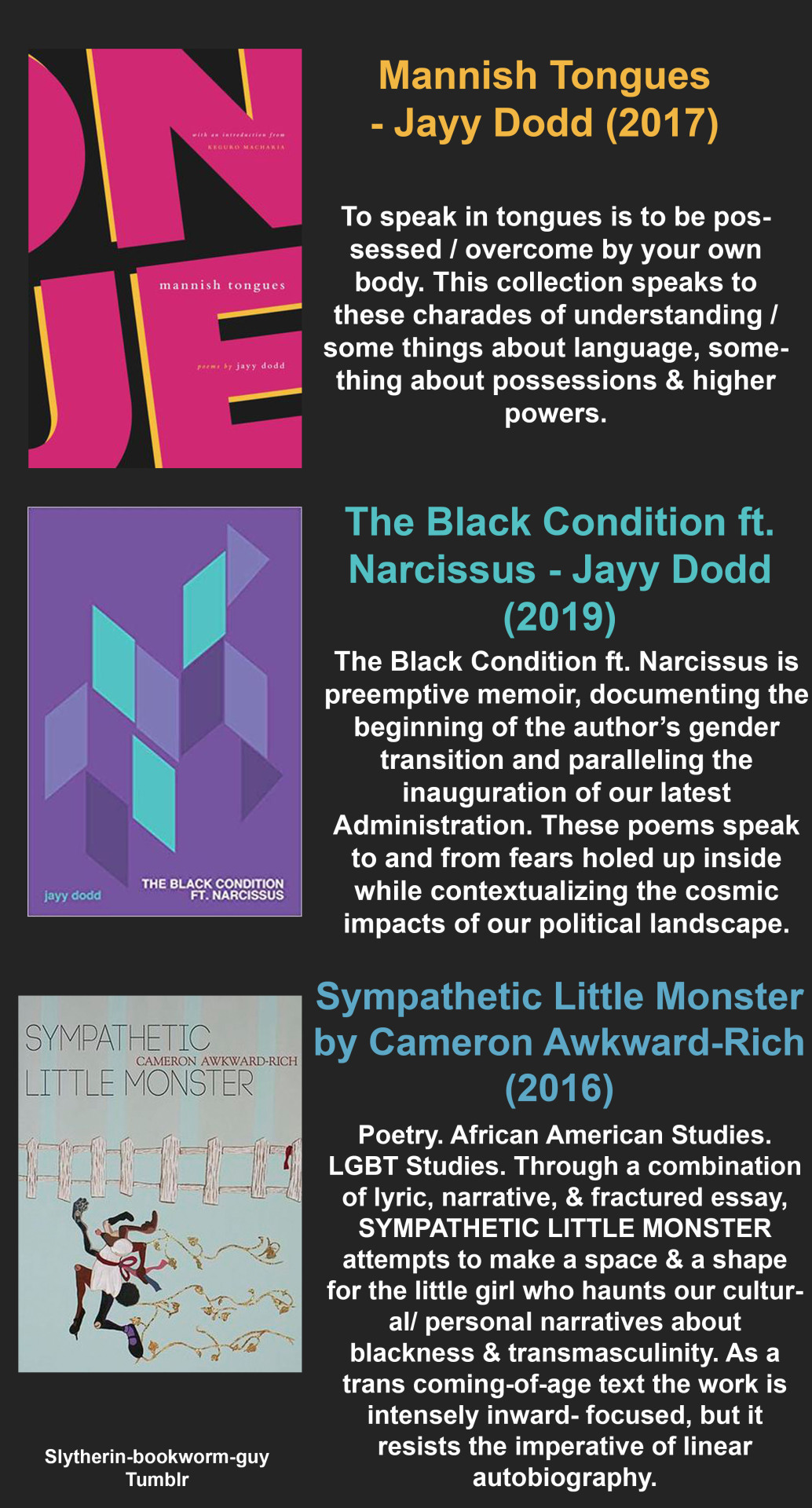
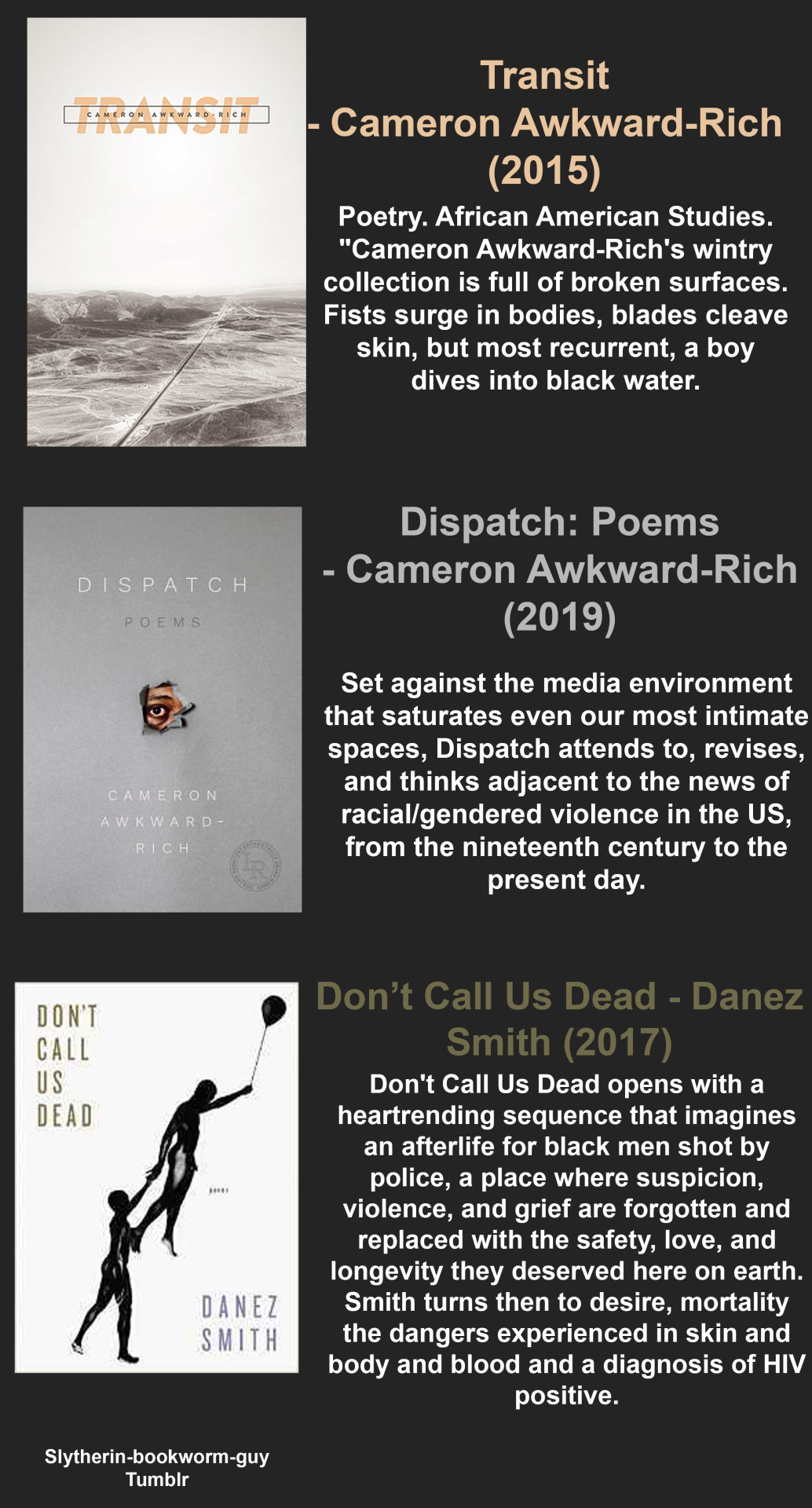

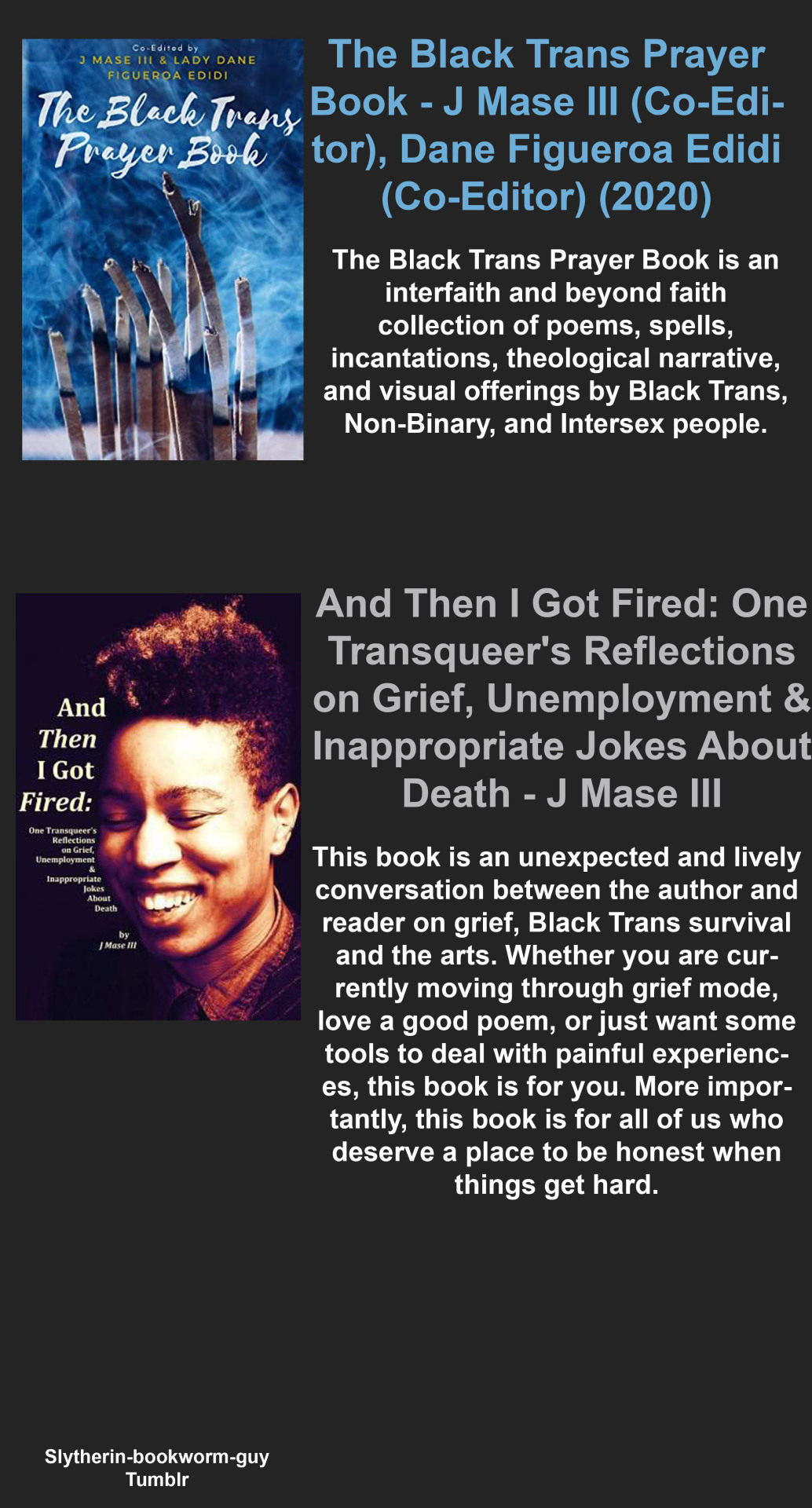
16 LGBT+ Books by Transgender and Non-binary Black Authors
As with my LGBT+ List, I’m seeing a lot of the same books on my dash, so I spent a few hours researching some lesser-known books. These books fall across a variety of genres and age group.
Ways you can help
19K notes
·
View notes
Photo




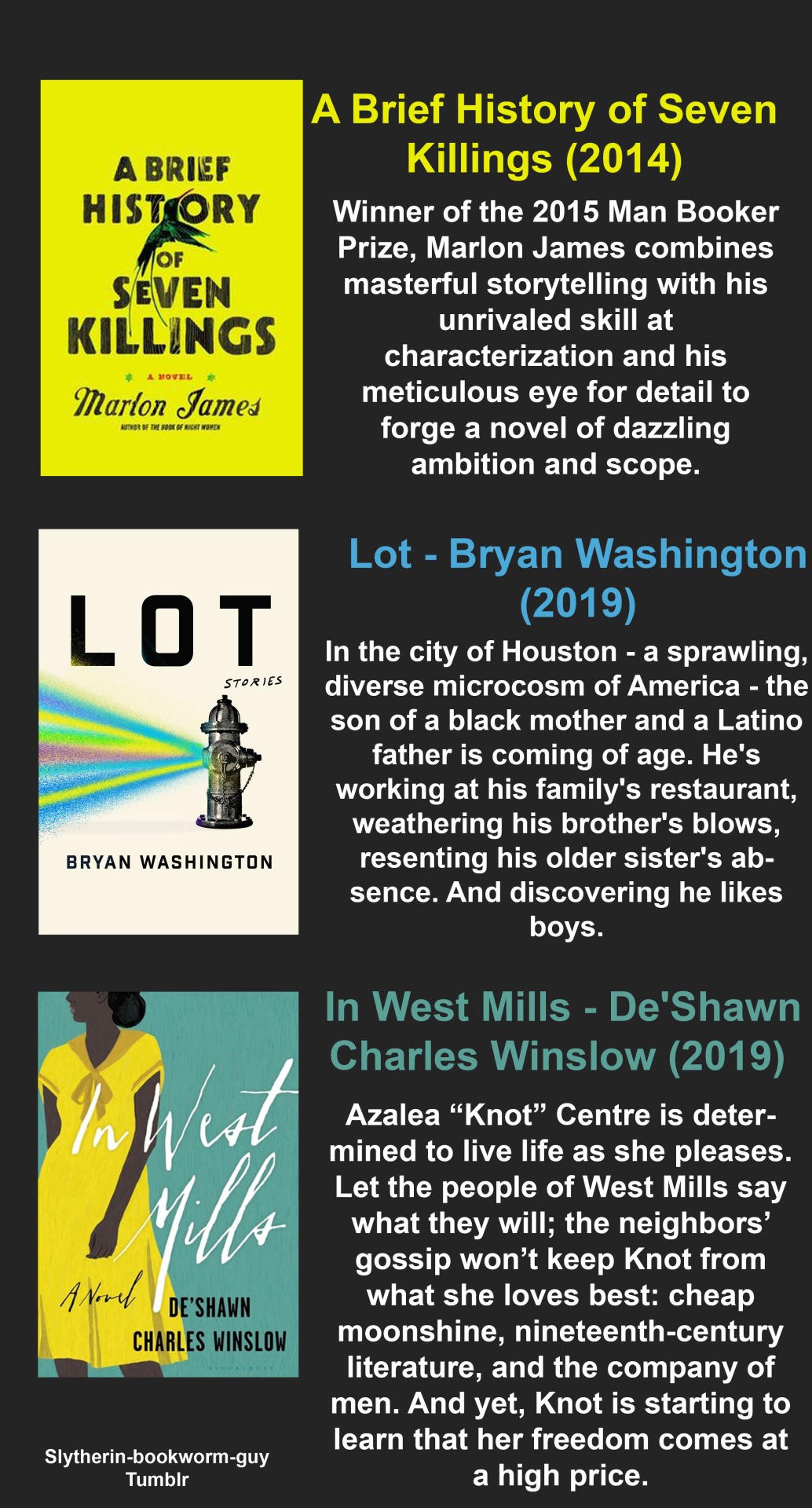
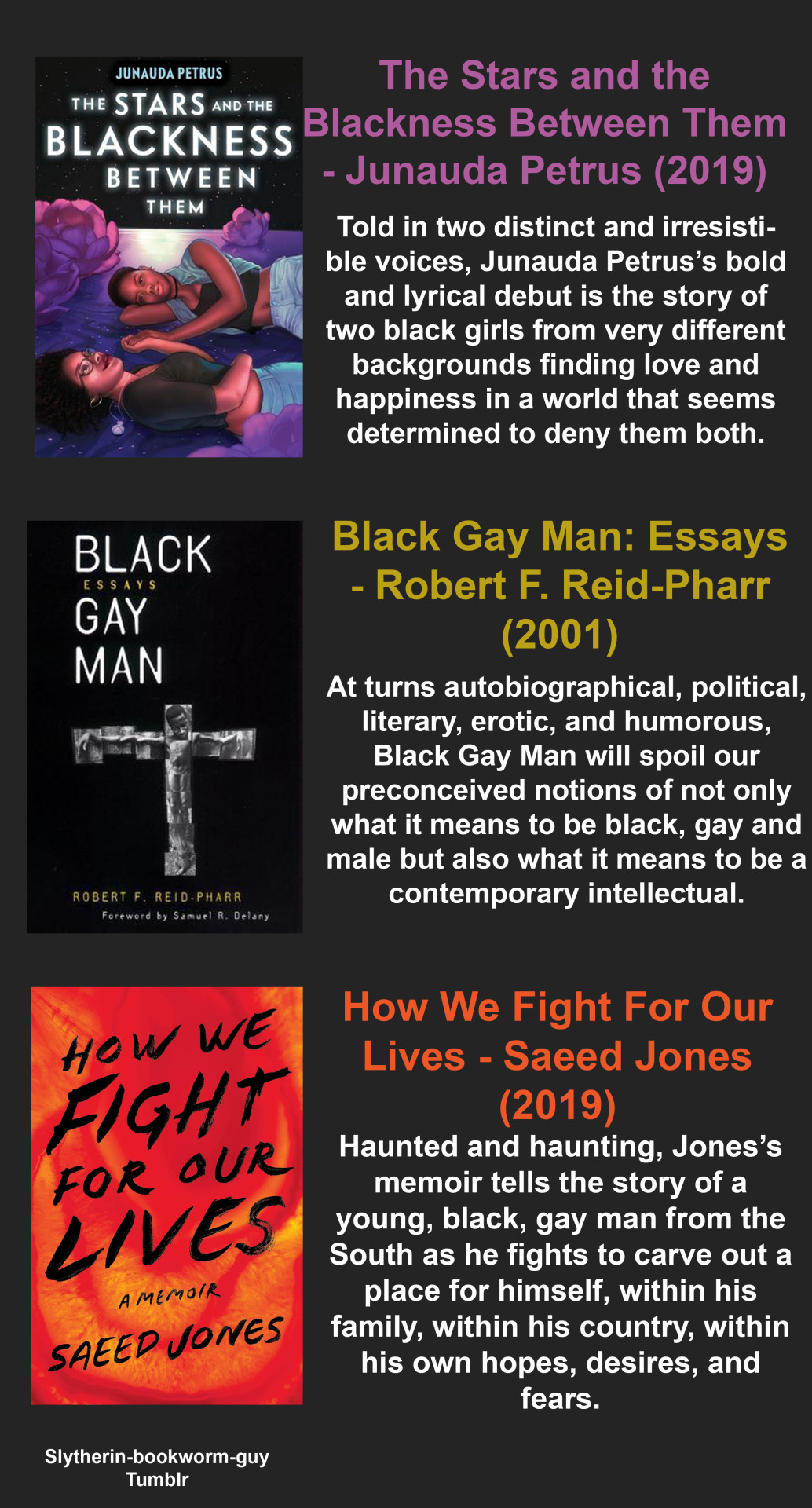
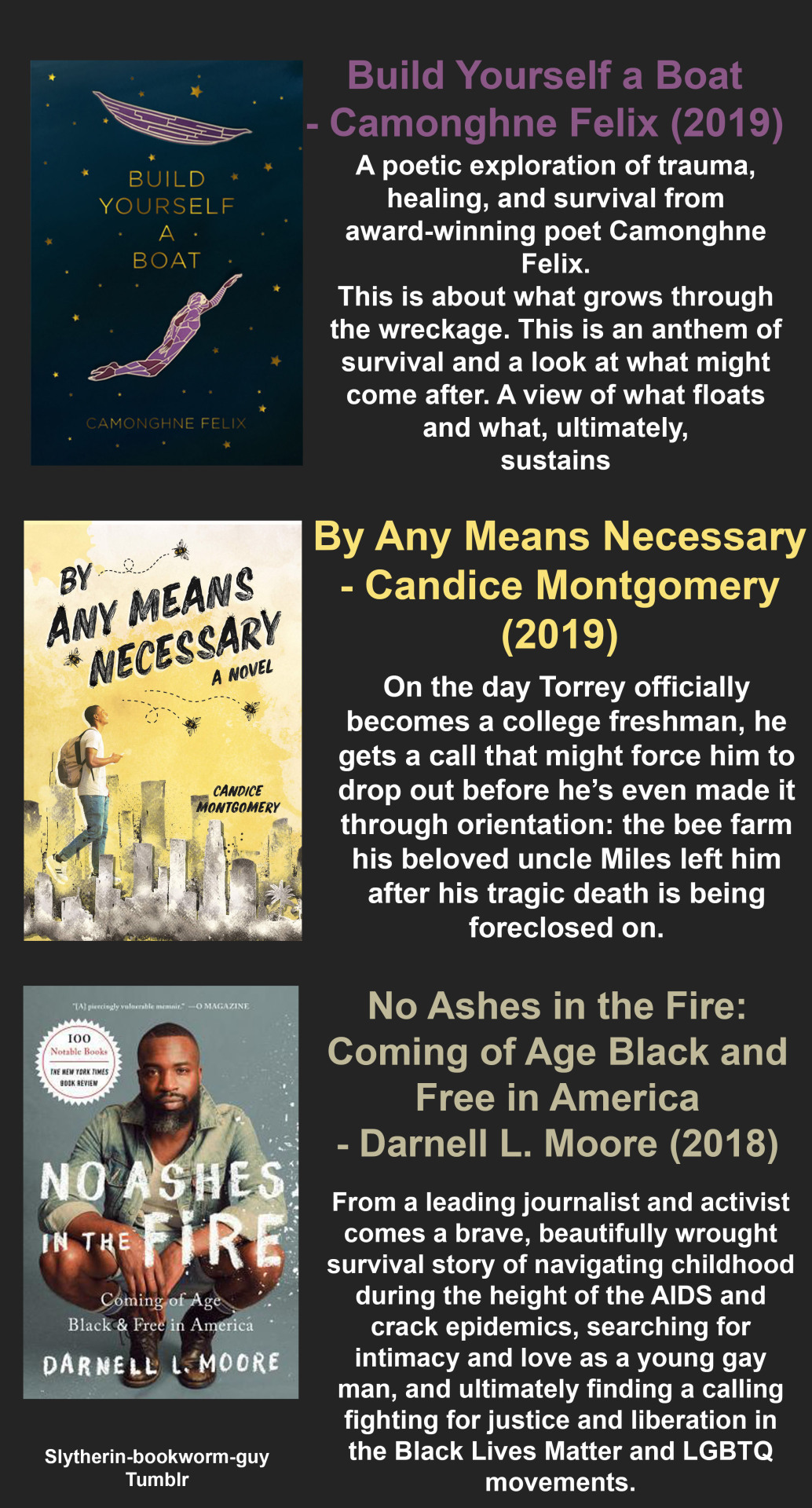


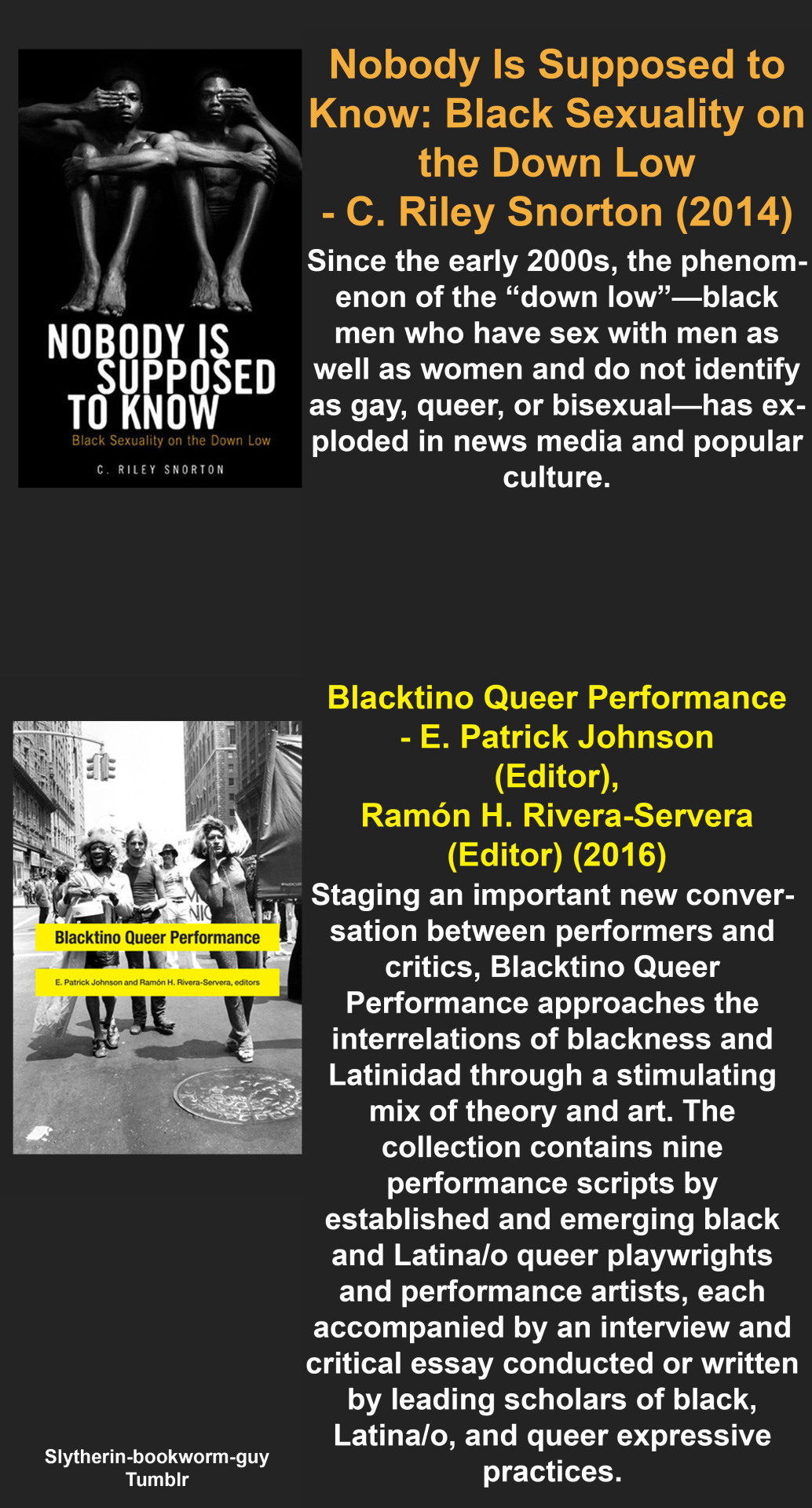
24 LGBT+ Books by Black Authors
I’m seeing a lot of the same books on my dash, so I spent a few hours researching some lesser-known books. These books fall across a variety of genres and age group.
Ways you can help
37K notes
·
View notes
Photo
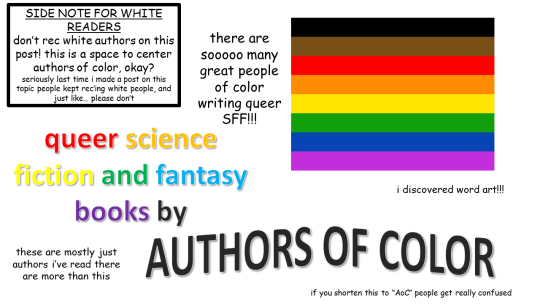
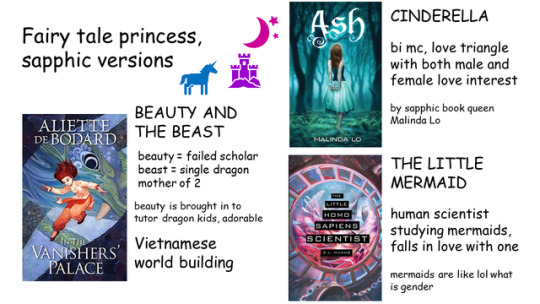
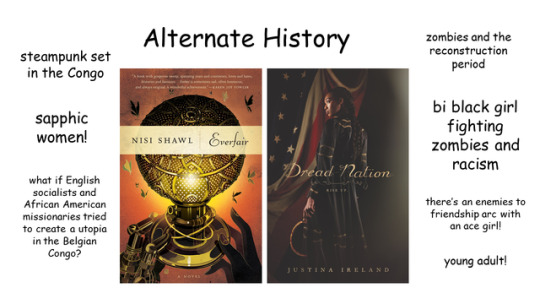
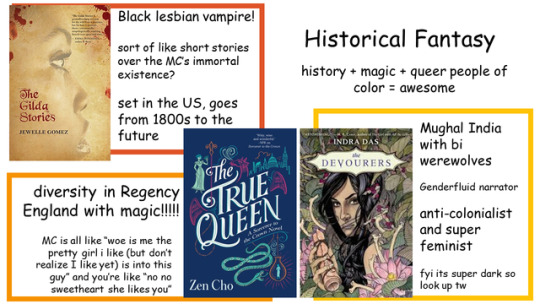
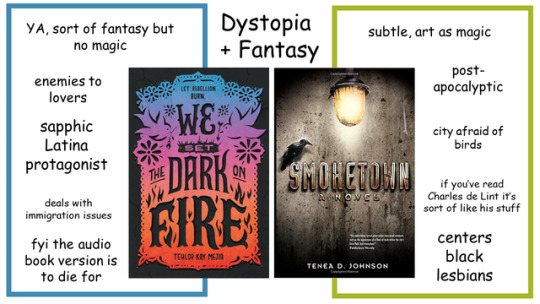
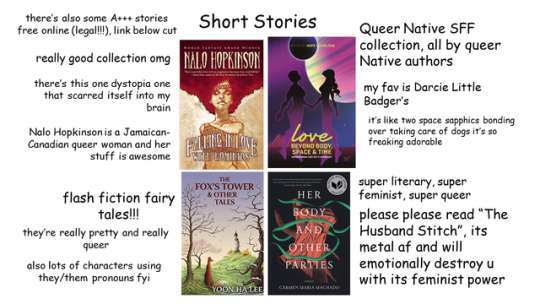
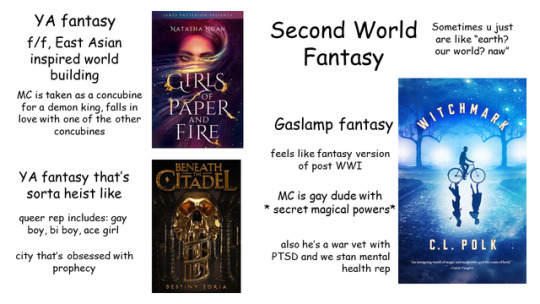
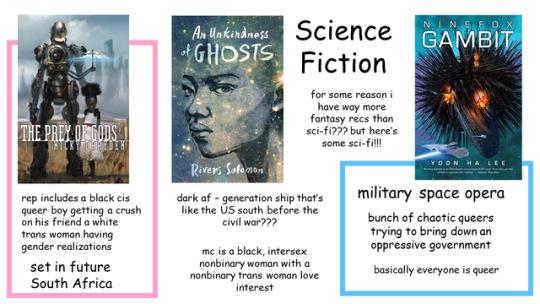
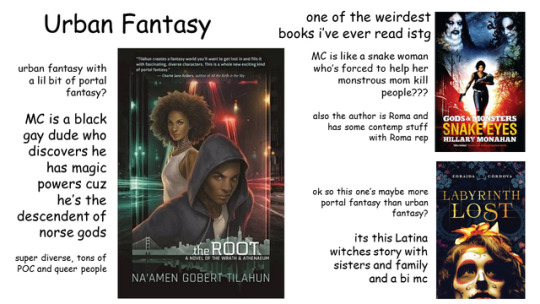
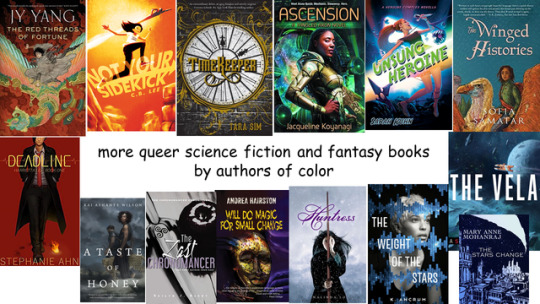
I did another post on this topic last year, but I thought it could use an update with some more books! And yes, the last post had people repeatedly adding on queer books by white people, so I’m a bit salty about it.
Other queer SFF PowerPoints:
Massive queer SFF rec post
Trans SFF
F/F SFF
Bi and Pan SFF
Ace SFF
I’m not transcribing all the text, but you can find the titles, authors, information on TW, etc beneath the cut.
When possible, I’m linking to my database of queer books. The page for each book includes the synopsis, content warnings under spoiler tags, and links to reviews from queer readers. If it’s not in the queer database at the time of posting (8/24/19), I’ll link to Goodreads instead.
Keep reading
55K notes
·
View notes
Text
Some people legit benefit from never, ever editing as they write. We mere mortals? Not so much. Personally, I’ve been trying to replace “never edit while you go” with something closer to “that’s a second draft issue”—a second draft issue being any problem that will take some thinking to solve and won’t break a piece if it doesn’t work right now.
Can’t decide if you want to write drives or shoves? Second draft issue. Not sure whether you want to turn that parenthetical into its own sentence? Second draft issue. Paragraph doesn’t flow quite right, but it’s conveying all the information it needs to convey? Second draft issue.
Mark ‘em if you want, scream into the void if you want, pause your flow for a minute to screw with ‘em if you really gotta, and then move on because spending an hour trying to fix it isn’t a valuable use of your time when you’re drafting.
Sometimes you really do need to go back! I can’t write if I leave spelling errors and typos as I go. It takes time, maybe it interrupts my flow a bit, but that ‘hte’ is going to bug me until it scrolls off the page. Sometimes I write myself into a corner and have to backtrack because no, there wouldn’t be anything open in Dryden at this time of night and really this scene needs to happen in a Walmart parking lot so everyone has to be in Wenatchee instead.
Other times? I have to move the fuck on because it’s a second draft issue
#there are some things i can do this with#but some things for whatever reason i need to fix immediately
505 notes
·
View notes
